About the Contemporary History department
Contemporary History Department
The Department of Contemporary History was established in 1984. Our research ranges from global contemporary history to war, migration and gender history. Christiane Berth took over the professorship for contemporary history with a focus on global contemporary history in August 2020 (location Institute für Geschichte, Attemsgasse 8/II). Based on the partnership with the Ludwig Boltzmann Institute for Research on the Consequences of War, a second professorship for European Contemporary History with a focus on conflict and migration research was established in 2019 ( Ludwig Boltzmann Institute, Liebiggasse 9).
The Department of Contemporary History researches global, regional and local processes of change in society, business, science and politics. We deal with the period from the late 19th century to the early 21st century - our wide-ranging research networks extend from Graz to Canada, Russia, West Africa, China, Japan and Latin America.
Our research draws on methods from cultural and social history history and the history of technology, whilst we also draw inspiration from interdisciplinary approaches. This helps us to evaluate the wide range of sources that touch on contemporary history, such as digital images, films, radio broadcasts or interviews with contemporary witnesses.
Our research areas
The world of the early 21st century is globally networked: goods, consumer habits and people travel across national borders and continents; news and information spread via social networks alongside the established media and cross the entire planet in fractions of a second. This is made possible by technical infrastructures: cables cross entire oceans, satellites circle the earth's orbit.
In such a networked world, there is a need to capture historical phenomena in their global dimensions. We investigate the development of these global interdependencies in technology, business, consumption, science and communication. We analyze how actors in various regions of the world faced global challenges, be it in the fight against hunger or the development of infrastructures. We are interested in the biographies, mobilities, knowledge and everyday experiences of the people concerned, but also in the underlying social and economic structures.
Methodologically, our research is based on current concepts from global, cultural and social history as well as media studies, cultural studies of space and science and technology studies.
Wars and conflicts do not stop when the guns fall silent. They have a history and they have consequences. The extent to which these consequences can still be felt decades later is the subject of contemporary historical research and teaching in this field. This includes state, societal, economic, social, humanitarian and cultural consequences of the two world wars and the Cold War. Special emphasis is also placed on the topics of migration in the 20th century and the children of war in Central and Eastern Europe and the Soviet Union.
We carry out teaching and research projects on European contemporary history with a focus on conflict and migration research, which promote the advancement of knowledge in this context through innovative questions. Our research in this area is characterized by international and interdisciplinary networking as well as socio-politically relevant issues. The partnership agreement concluded in August 2018 between the University of Graz and the Ludwig Boltzmann Institute for the Consequences of War (BIK) ensures a close exchange between research, teaching and outreach. This enables students to complete internships or gain initial experience in the academic field.
"Memory" plays a central role in the social negotiation of identity and belonging and in conflicts over political power and cultural hegemony. Particularly since the 1980s and the reception of the multi-volume work Les lieux de mémoire edited by Pierre Nora, historians have been examining discourses and forms of expression of collective memory both theoretically and empirically and reflecting on their own role as part of social memory struggles. The History of Memory as a thematic focus began in the late 1980s in the field of contemporary history with research into the Waldheim Affair and debates on the culture of remembrance of the Nazi regime and the Second World War.
Research in this area has taken significant impetus from the theoretical approaches of Aleida and Jan Assmann, Astrid Erll and Pierre Nora, all of which are themselves oriented towards cultural studies. It deals with the role of memory discourses in political and social conflicts, focussing on the polyphony of memory narratives, which contradicts the idea of homogeneous (especially national) memories. Different representations of memory are examined - political texts as well as signs in public space (monuments, street names etc.) and performative acts (holidays/festivals, inaugurations etc.), "high culture" and popular culture media. In recent years, the focus has been on the representation of wars and violence in cultural memory (e.g. war memorials and revolutionary memorials) and political regimes. Discourse-analytical, image and media-scientific approaches highlight the interdisciplinary approach to this field of research.
Global working environments in transition: The history of technology, gender and emotions since the 1960s
Head: Christiane Berth
Duration: 2022-2024
Funded by: Elisabeth List Fellowship Program for Gender Studies
In recent years a lively, not to say emotional debate about the future of work has emerged. Digital technology has been shaping the global world of work for decades and has repeatedly triggered fears of job losses. During the COVID-19 pandemic, the use of digital technology reached a temporary peak, and with it, the trend towards flexibilization and the dissolution of boundaries in work.
This research project looks at the changes in global working environments from a historical perspective. It analyzes how the relationship between digital technology, gender relations and emotions has changed in various fields of work, including office work, industry and agricultural production. A comparative look at developments in Europe, Southeast Asia and Latin America enables conclusions to be drawn about different spans of time, global inequality in access to technology, and the diverse shaping of gender roles.
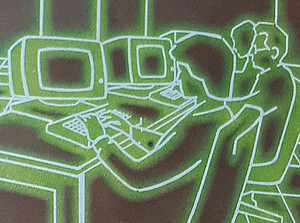
Fellows
Christiane Berth (Director): christiane.berth(at)uni-graz.at
Anna Baumann (SNF Fellow): anna.baumann@unibe.ch - 1.3.-31.8.2024
Mike Prentice: mike.prentice(at)sheffield.ac.uk - June/July 2024
Monika Arnez: monika.arnez(at)upol.cz - February/May 2024
Helen Glew : H.Glew@westminster.ac.uk - May/June 2023
Nina Jahrbacher: nina.jahrbacher(at)uni-graz.at - 1.4.2022-30.6.2023
Martina Heßler: hessler(at)pg.tu-darmstadt.de - 15.7.-1.8.2022 and May 2023
Heidi Schweickert: heidi.schweickert(at)web.de - 1.6.-30.9.2022
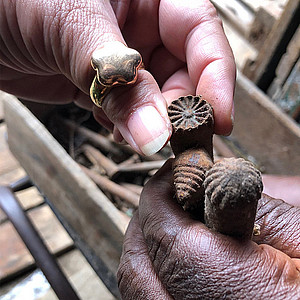
A history of "Making Things" in West Africa, 1920-1980
Staff involved: Mag.phil. Katharina Oke, PhD
Duration: 1.9.2022-28.2.2025
Funding body/funding program: European Commission/H2020
A history of 'Making Things' in West Africa, 1920-1980: Creating, Meaning making, and Experience focuses on craft production and handicrafts in Accra and Lagos. It approaches productive processes with a focus on the creative process and the socio-cultural significance of "making things". The aim of the project is, firstly, to shed light on historical knowledge systems and experiences of "making things" during and after formal colonial rule. Secondly, it seeks to contribute to establishing entrepreneurial activities as part of the social, cultural and political historiography of Africa. Turning to entrepreneurial activity, the project simultaneously attempts to overcome a reductive focus on questions of capital accumulation; questions of 'making things' thus allow historical insights into the ways in which people have interacted with technology (an approach that does not prescribe a binary distinction between 'imported' and ‘local’) and illuminates a range of motivations for entrepreneurial activity.
The project focuses on bakers and goldsmiths and thus also attempts to provide insight into different careers in arts and crafts and gender history. The aim of the project is to challenge Eurocentric notions of innovation and technology, and to highlight individual and collective knowledge on how to deal with adverse economic conditions during and after colonial rule. In this way, it also aims to contribute to a more complex account of how West African societies are part of the growing literature on the global history of capitalism and the history of science and knowledge.
The activities of Czechoslovak intelligence services in Austria in the Central European context 1948-1960.
Networks - Operations - Impact (FWF P-33220 G)
Head: Barbara Stelzl-Marx
Duration: since March 2020
Funded by: FWF
In March 2020, the Austrian Science Fund (FWF) granted funding for an international three-year research project on "The activities of Czechoslovak intelligence services in Austria in the Central European context 1948-1960. Networks - Operations - Impact" (FWF P-33220 G) under the direction of Univ.-Prof. Dr. Barbara Stelzl-Marx. It is being carried out at the Institute of History at the University of Graz in cooperation with the Ludwig Boltzmann Institute for Research on the Consequences of War.
After the end of the Second World War, the newly formed Czechoslovakian intelligence services began their first activities in neighboring Austria. Shortly after the communist takeover in February 1948, these activities increased significantly - Austria became an important hub for operations against the "West". In the first half of the 1950s, during the occupation, many operations that were critical from the Soviet Union's point of view were carried out by Czechoslovakian networks and their collaborators. According to the US Counterintelligence Corps (CIC), the Czechoslovak intelligence services were among the most "active" services from Eastern Europe, which played a decisive role in the emerging Cold War, especially on Austrian territory.
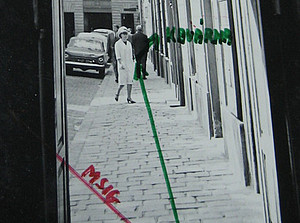
The activities of the Czechoslovakian intelligence services in Austria as a whole have hardly been researched to date. This FWF-funded project aims to analyze systematically the activities of the Czechoslovak residencies (intelligence bases) in Vienna and Salzburg and their personnel in the first half of the Cold War, with comparisons to other important stations where they were active. Central questions are, for example, how the necessary secret networks were created, maintained and secured, which operational methods were used and which goals were pursued. The results of the project will thus make an important contribution to Cold War Studies.
The project is headed by Prof. Dr. Barbara Stelzl-Marx, Professor of European Contemporary History at the University of Graz and Director of the Ludwig Boltzmann Institute for Research on the Consequences of War. Dieter Bacher is responsible for the coordination and conducts the research in British and US archives, and Philipp Lesiak is responsible for the research in Czech, Slovakian and Austrian archives.
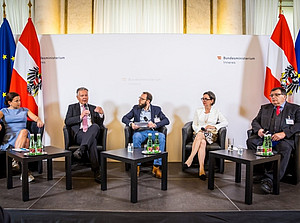
The police in Austria: ruptures and continuities 1938-1945
Staff: Prof. Dr. Barbara Stelzl-Marx, Dr. Kurt Bauer, Nadjeschda Stoffers, Richard Wallenstorfer, BA, and others
Funded by: Federal Ministry of the Interior of the Republic of Austria
Conducted at the Institute of History at the University of Graz, in cooperation with the Ludwig Boltzmann Institute for Research on the Consequences of War
Project partners: Documentation Centre of Austrian Resistance, Mauthausen Concentration Camp Memorial Site
Since the beginning of 2022, the University of Graz, in cooperation with the Documentation Centre of Austrian Resistance, the Mauthausen Concentration Camp Memorial and the Ludwig Boltzmann Institute for Research on the Consequences of War, has been conducting a research project on "The Police in Austria: Ruptures and Continuities 1938-1945". This project, which is funded by the Austrian Ministry of the Interior, aims to make an initial contribution to the academic reappraisal of the history of the Second Republic's most important executive body. Knowledge of the significance, function and developmental history of Nazi organizations with a police function, the abuse of police powers within the framework of a totalitarian state of injustice and their specific connection to Austria - or Austrians - are of great importance here. An additional focus is on the judicial punishment and processing of Nazi crimes in the post-war period.
Taken along: Ukrainian refugees in Austria through the mirror of mobile objects
Staff: Prof. Dr. Barbara Stelzl-Marx,Dipl.-Psych. Irina Malikova
Duration: 2022-2025
Funded by: Graz University of Technology, University of Graz, Province of Styria
"It was simply difficult to decide what to take with you when you don't know whether you'll come back," says a Ukrainian woman who fled to the West after the Russian invasion of Ukraine on February 24, 2022. The aim of the project is to use oral history interviews to document personal stories of Ukrainian refugees in Austria and present them to the public in the form of a richly illustrated publication. In each case, the focus is on an object that was taken from the home country and is intended to serve as a starting point for the autobiographical stories of the refugees. The experience of war, the stages of flight and finally life far from home can be illuminated in the mirror of the selected object. The term "Mitgenommen" thus stands for the "mobile thing", but also for the precarious situation of the people concerned.
Realization: Institute of History of the University of Graz in cooperation with Ludwig Boltzmann Institute for Research on the Consequences of War
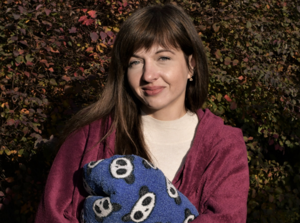
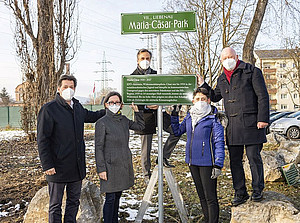
Additional plaques for personal street names in Graz Implementation of the catalog of measures
Employees: Prof. Dr. Barbara Stelzl-Marx
Duration: 2020-2024
This project will install plaques to accompany Graz streets and squares named after people, giving further context to the lives of the individuals involved. In addition, biographies of around 750 personal street names will be created and published on the City of Graz website in a geo-referenced map.
Telephoning in Latin America: visions of technology, power and social relations, 1970-2010
Univ.-Prof. Dr. Christiane Berth
The telephone network was an important social reference point in the contemporary history of Latin America. Desires, hopes, anger, visions of development and social rules crystallized around the telephone. On the one hand, telephone exchanges and public telephones were seen as a symbol of progress. Companies and politicians designed an idealized version of the telephone network; in their opinion, white users in urban centres bore witness to the modernity of Latin American societies. This contrasted with the experiences of many users, who struggled with interrupted calls, poor transmission quality or faulty equipment.
On the other hand, telephones became a symbol of poor service and the political neglect of infrastructures. Since the 1980s, there have been fierce political debates about the privatization of telephone companies. At the same time, experiments with cell phones began, replacing landlines in the 21st century and rendering public telephones meaningless. The project analyzes the interactions between the political economy of telecommunications, state regulation and new technologies and forms of use.
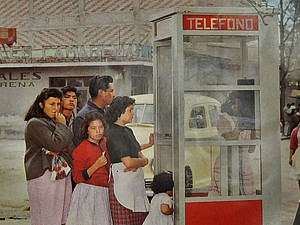
Publications of the Contemporary History Department
Berth, Christiane / Wieters, Heike (2021): "Wonder Foods" to End World Hunger? International Organizations, NGOs, and Industrial Actors in Global Nutrition, 1940s to 1970s.
In: Research in Contemporary History 18.2, pp. 307-330.
Berth, Christiane (2021): Food and Revolution. Fighting Hunger in Nicaragua, 1960-1993. Pittsburgh. University of Pittsburgh Press.
Kotik, Tanja (2021): The East-Southeast Asian world system, its integration into the modern world system and state transformation in China, ca. 1500 to 1900. In: Zeitschrift für Weltgeschichte. 22,1-2. 2021. S. 231-256.
Berth, Christiane (2020): "Coffee with blood on it" - consumer boycotts against Latin American dictatorships.
In: Bulletin Association of Swiss History Teachers. S. 22-26.
Berth, Christiane (2020): Between hope, pride and anger. The emotional appropriation of the telephone in Mexico, 1930s to 1980s.
In: Heßler, Martina (ed.): Technology emotions. Paderborn. Ferdinand Schöningh. S. 229-249.
Berth, Christiane (2020): ITU, the Development Debate, and Technical Cooperation in the Global South, 1950-1992.
In: Gabriele Balbi, Andreas Fickers (eds.): History of the International Telecommunication Union (ITU). Transnational Techno-Diplomacy from the Telegraph to the Internet. Berlin/Boston. De Gruyter Oldenbourg. S. 77-106.
Berth, Christiane; Pineda, Yovanna; Wolfe; Mikael (2020): Dialogues: History of Technology in Africa and the Americas in the Twentieth Century - Blog article Technology's Stories.
Berth, Christiane (2020): Fear, Curiosity and New Social Rules: Representations of Early Telephone Use in Latin America, 1880-1935 - Blog article Technology's Stories.
Suppanz, Werner (2023): The memorial to the unknown soldier. An unrealized project in the Austrian First Republic. In: Richard Hufschmid, Karin Liebhart, Dirk Rupnow, Monika Sommer (eds.): ErinnerungsORTE weiter denken. In memoriam Heidemarie Uhl. Vienna. Böhlau. 2023. S. 337-348.
Suppanz, Werner (2023): "Ghosts of the old Austria. The struggle for the power of interpretation over the Habsburg past in the First Republic. In: Feichtinger, Johannes; Uhl, Heidemarie (eds.): Das integrative Empire. Knowledge production and cultural practices in Habsburg Central Europe. Bielefeld. transcript. 2023. 281-301.
Andrea Strutz (2022): History workshops as a form of narrative history culture
In: Rita Garstenauer et al. (eds.), Geschichte, Erinnern, Erzählen. Conducting and researching historically oriented biographical work, 2022, pp. 112-117 (in print).
Stromberger, Monika (2020): Of Heroes, Victims and Enemies: A Comparison of Memorials for the Dead of the Second World War in Yugoslavia/Slovenia and Austria/Styria (1945-1961).
In: Frank Jacob, Kenneth Pearl (Eds.), War and Memorials. The Second World War and Beyond (= War (Hi) Stories 4), Paderborn et al., pp. 73-104.
Suppanz, Werner / Goll, Nicole M. (eds.) (2022): "Heimatfront": Graz and the Crown Land of Styria in the First World War. Vienna-Cologne: Böhlau Verlag.
Suppanz, Werner / Goll, Nicole M. (2022): "Directed Society". Styria in the "total" war. In: "Home Front": Graz and the Crown Land of Styria in the First World War. Vienna-Cologne: Böhlau Verlag, pp. 7-30.
Suppanz, Werner / Lakitsch, Maximilian (eds.) (2022): Grazer Forschungsbeiträge zu Frieden und Konflikt. Graz: Graz University Library Publishing. Available online as open access (PDF).
Bacher, Dieter (2020):Intelligence services in occupied Austria: The Soviet side
In: Karner, Stefan / Stelzl-Marx, Barbara (eds.), The Red Army in Austria. Aspects of Soviet Occupation 1945-1955. The Harvard Cold War studies book series. Lanham/Boulder/New York/Toronto: Plymouth.
Bacher, Dieter (2020): Between staying, returning and moving on? Fremdsprachige Displaced Persons in Niederösterreich 1945-1955.
In: Österreichische Zeitschrift für Geschichtswissenschaften (ÖZG), 1/2020 "Migrationswege", pp. 139-163. Also available online as open access (PDF).
Bacher, Dieter (2020): Collecting the Shreds. Former Austrian POWs in the Soviet Union as a Source of Information for British Secret Services in Early Cold War Austria.
In: Frank Jacob, Stefan Karner (eds.): War and Veterans. Treatment and Reintegration of Soldiers in Post-War Societies. Paderborn, pp. 185-201.
Bachinger, Bernhard (2020): Challenge in the Balkans: The Experiential Worlds of German-speaking Soldiers on the Salonica Front 1915-1918.
In: Frank Jacob, Stefan Karner (eds.): War and its Aftermath. New York.
Bischof, Günter / Stelzl-Marx, Barbara / Bergmann-Pfleger, Katharina (2020): Auftrag Zukunft: 3000 Zeichen für Gedenken, Toleranz und Demokratie. 15 years of the Future Fund of the Republic of Austria. Vienna/Cologne/Weimar.
Karner, Stefan / Stelzl-Marx, Barbara (eds.) (2020): The Red Army in Austria: The Soviet Occupation, 1945-1955. The Harvard Cold War studies book series. Lanham/Boulder/New York/Toronto: Plymouth.
Knoll, Harald / Stelzl-Marx, Barbara (2020): Stalin's Judiciary in Austria. Arrests and Convictions during the Occupation.
In: Stefan Karner, Barbara Stelzl-Marx (eds.), The Red Army in Austria. Aspects of Soviet Occupation 1945-1955. The Harvard Cold War studies book series. Lanham/Boulder/New York/Toronto: Plymouth.
Ruggenthaler, Peter / Steiner, Anna (2020): The road to Helsinki. Détente with Bonn as the final stage on the way to convening the Conference on Security and Cooperation in Europe.
In: Michael Borchard, Stefan Karner, Hanns Jürgen Küsters, Peter Ruggenthaler (eds.): Détente in the Cold War. The Road to the Moscow Treaty and the CSCE, Graz - Vienna, pp. 677-701.
Stelzl-Marx, Barbara (2020): Ivan's Children, The Consequences of Sexual Relations between Red Army Soldiers and Austrian Women
In: Stefan Karner, Barbara Stelzl-Marx (eds.), The Red Army in Austria. Aspects of Soviet Occupation 1945-1955. The Harvard Cold War studies book series. Lanham/Boulder/New York/Toronto: Plymouth.
Knoll, Sarah (2023): A "migration of peoples"? The flight from Romania and refugee policy in Austria around 1990
In: Zeithistorische Forschungen/Studies in Contemporary History, online edition, 19 (2022), H. 3
Andrea Strutz (2023): Internment of Civilians and Refugees as Enemy Aliens during the First and Second World Wars in Canada. In: Gabriele Anderl (ed.), Hinter verschlossenen Toren - die Internierung von Geflüchteten von den 1930er-Jahren bis in die Gegenwart. Vienna: Publishing house of the Theodor Kramer Society 2023, pp. 403-429.
Strutz, Andrea (2023): Forced to flee and deemed suspect: Tracing life stories of interned refugees in Canada during and after the Second World War
In: Gabriele Anderl, Linda Erker, Christoph Reinprecht (eds.), Internment Refugee Camps. Historical and Contemporary Perspectives. Bielefeld: transcript 2022, pp. 229-250 (peer reviewed).
Andrea Strutz (2021): Emigration from Graz in the post-war period - an attempt at an account
In: Historisches Jahrbuch der Stadt Graz, Vol. 51 (Migrationsraum Graz), 2021, pp. 129-148 (reviewed).
Andrea Strutz (2021): Traveling knowledge: Refugees from Nazism and their Impact on Art Music and Musicology in post-1945 Canada
In: Susanne Korbel, Philipp Strobl (eds.): Mediations through Exile: Cultural Translation and Knowledge Transfer on Alternative Routes of Escape from Nazi Terror. London: Routledge 2021, pp. 135-153 (peer reviewed).
Andrea Strutz (2020): Interned as "enemy aliens": Jewish Refugees from Austria, Germany and Italy in Canada
In: Yearbook of the Research Centre for German and Austrian Exile Studies 20, ed. by Swen Steinberg and Anthony Grenville. Brill/Rodopi: Leiden, Boston, pp. 46-67 (peer reviewed).
Suppanz, Werner (2020): Othmar Spann's writings until 1918.
In: Karl Acham with the collaboration of Georg Witrisal (ed.): Die Soziologie und ihre Nachbardisziplinen im Habsburgerreich. Vienna-Cologne-Weimar. Böhlau. S. 607-612.
Suppanz, Werner (2020): Karl Kautsky: Race and Judaism (1914).
In: Karl Acham with the collaboration of Georg Witrisal (ed.): Die Soziologie und ihre Nachbardisziplinen im Habsburgerreich. Vienna-Cologne-Weimar. Böhlau. S. 910-912.
Suppanz, Werner (2020): Friedrich Hertz: Modern Theories of Race. Critical essays (1904).
In: Karl Acham with the collaboration of Georg Witrisal (ed.): Die Soziologie und ihre Nachbardisziplinen im Habsburgerreich. Vienna-Cologne-Weimar. Böhlau. S. 906-910.
Suppanz, Werner (2020): Isidor Singer: The Jews' struggle for justice (1902).
In: Karl Acham with the collaboration of Georg Witrisal (ed.): Die Soziologie und ihre Nachbardisziplinen im Habsburgerreich. A compendium of international research on cultural studies in Central Europe. Vienna-Cologne-Weimar. Böhlau. S. 902-906.
Mag. Phil. Dieter Bacher
Dieter Bacher's main interest is in the "missing dimension", as one of the first intelligence historians, Christopher Andrew, put it: the role of secret and intelligence services in developments during the Cold War, in his case primarily in relation to Austria. In this field, Dieter Bacher is currently completing his dissertation on the activities of Czechoslovak intelligence services in Austria from the perspective of British and US intelligence services as part of an FWF project led by Barbara Stelzl-Marx at the Institute of History at the University of Graz. He is also working on research projects on topics such as migration and camps in post-war Austria, forced labour during National Socialism and fatal escapes along the "Iron Curtain".
As part of his intelligence studies, Bacher completed several research stays abroad, including at the National Archives in Kew, London, and the National Archives in College Park, Maryland, USA. In addition to his work in the European Contemporary History department at the University of Graz and at the Ludwig Boltzmann Institute for the Consequences of War, he is also active on various committees, for example as co-editor of the Journal of Intelligence, Propaganda and Security Studies (JIPSS) and on the organizing committee of the intelligence studies conference series "Need to Know".
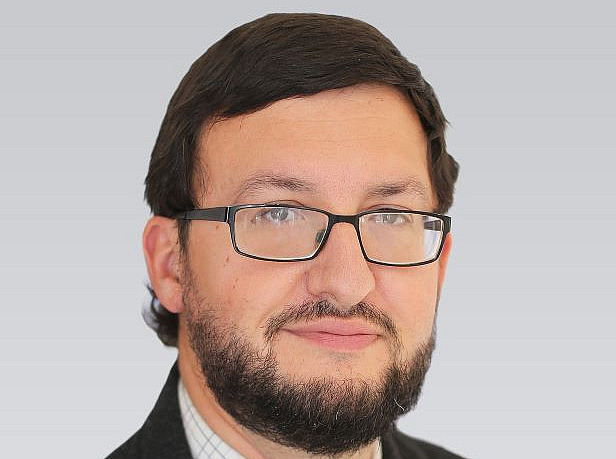
Prof. Dr. Christiane Berth
I research the history of communication and technology, food and consumption as well as world trade and migration. My current research project deals with the global history of the modern office.
After completing my PhD on the history of the coffee trade at the University of Hamburg (2010), I did postdoctoral research in Switzerland on hunger and nutrition in Latin America. It was there that I wrote my habilitation thesis, published as Food and Revolution. Fighting Hunger in Nicaragua, 1960-1993 (University of Pittsburgh Press, 2021).
My research has taken me to Costa Rica, Guatemala, Nicaragua, Mexico, Paraguay and Colombia, among other places. I have been Professor of Contemporary History at the University of Graz since August 2020.
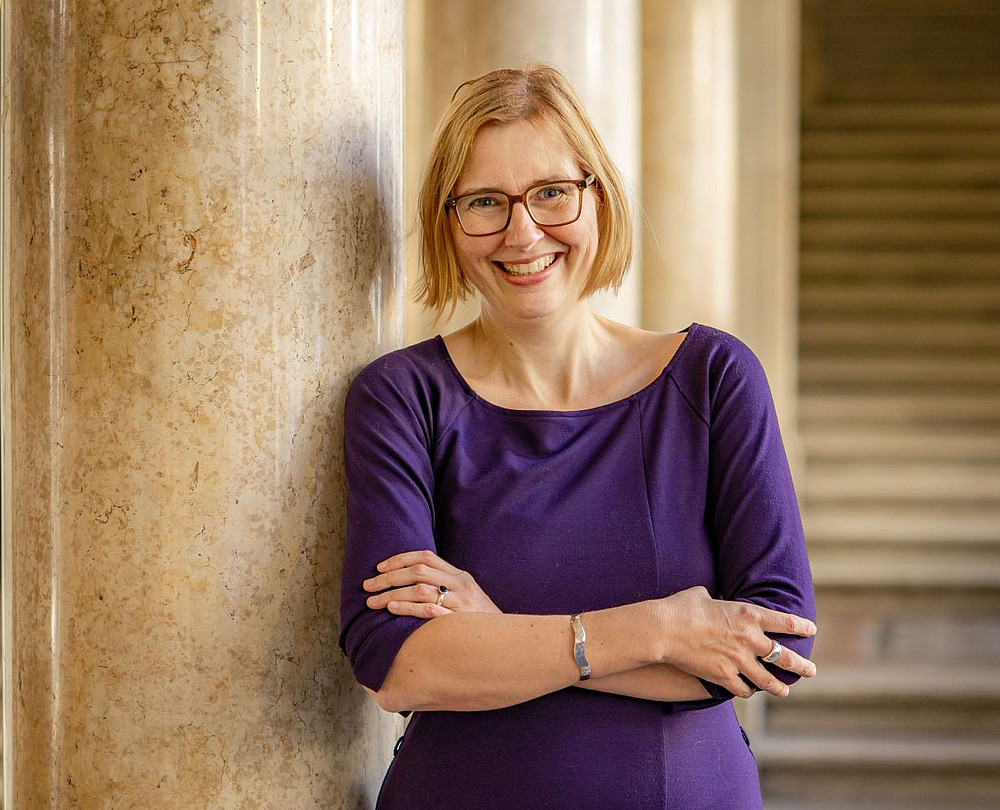
Univ.-Prof. Dr. Christiane Berth
+43 316 380 - 2621
Institut für Geschichte
Di, 11-12 (vorherige Anmeldung per Email erforderlich)
Michael Fleck, MA
Michael Fleck has been supporting research, teaching and administration as a technical assistant in the European Contemporary History department at the Institute of History since autumn 2022. He is also working on his dissertation at the Centre for Information Modeling. In his research, Fleck is investigating how audiovisual sources can be automatically indexed and analyzed through the use of artificial intelligence.
After graduating from the HTL Kaindorf/Sulm in 2012, Michael Fleck gained professional experience in various positions in software development. In 2017, he began a bachelor's degree in history at the University of Graz, which he successfully completed in 2020. He then completed a Master's degree in Digital Humanities at the Centre for Information Modeling in summer 2022.
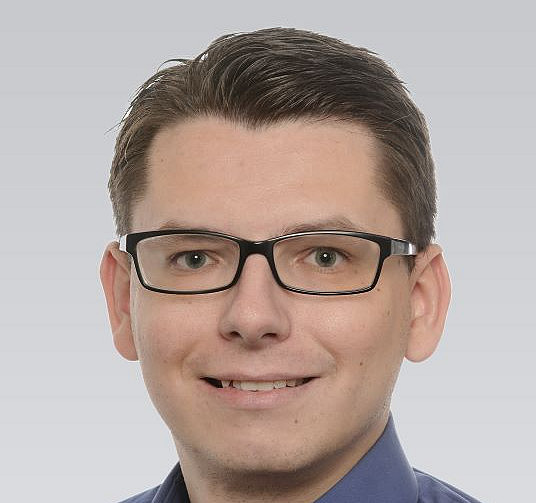
Linus Lanfermann-Baumann, BA MA
Linus Lanfermann-Baumann studied History and English at Göttingen University (B.A.), McMaster University, Heidelberg University (M.A.), and Yale University. He joined the Department of Contemporary History as a doctoral candidate in October 2024. During July and August 2025, he was a fellow at the German Historical Institute Washington.
His research focuses on the entanglements between the Americas and Europe during the Cold War. His dissertation explores the relationship between the Central America solidarity and antinuclear peace movements in the 1980s within the transatlantic triangle of Central America, the United States, and West Germany.
His other research interests include migration history and historical memory. In 2024, he published an article on emigration to Canada during the Weimar Republic in the Oldenburger Jahrbuch, and another on West German memory of the Communist resistance in the Jahrbuch für Historische Kommunismusforschung.
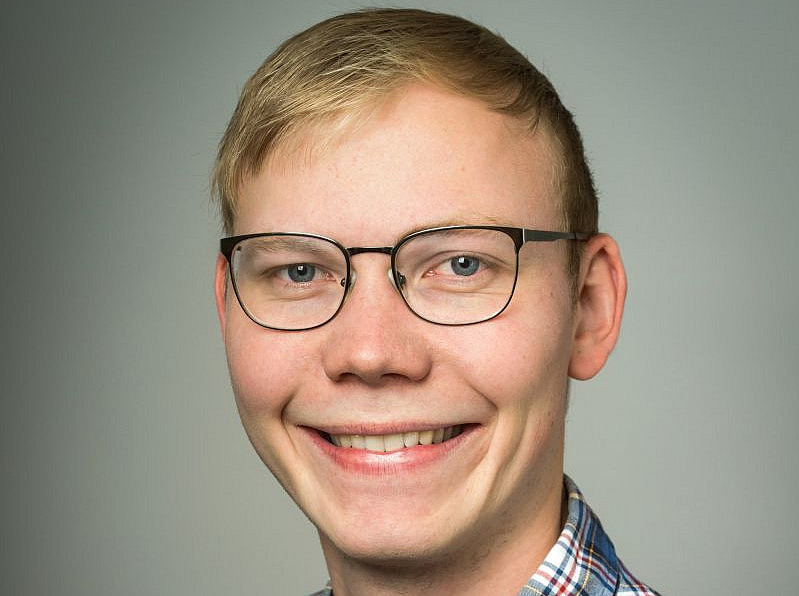
Dipl. Psychologist Irina Malikova
Irina Malikova graduated from the Moscow Linguistic University in 1991 with a degree in German language and literature, and in 2002 she completed a degree in psychology at the Albert-Ludvigs University in Freiburg in Breisgau. From 2003 to 2006 she attended the postgraduate course "Behavioral Therapy" at the University of Basel, Switzerland and worked as a clinical psychologist.
Since 2022 she has been working on the research project "Mitgenommen. Ukrainian refugees in Austria as reflected in mobile objects", which is being carried out at the Department of European Contemporary History at the Institute of History at the University of Graz in cooperation with the Ludwig Boltzmann Institute for Research on the Consequences of War under the direction of Prof. Dr. Barbara Stelzl-Marx.
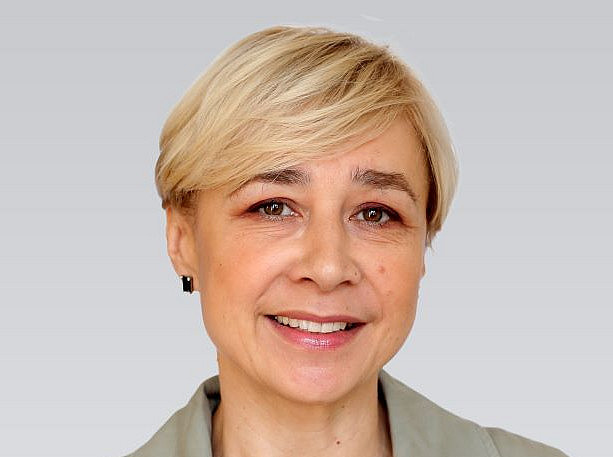
MMag.a Sabine Nachbaur
Sabine Nachbaur is currently conducting research as part of an FWF project on the activities of the Czechoslovak intelligence services in Austria in the 1950s and 1960s, which has been carried out at the University of Graz in cooperation with the Ludwig Boltzmann Institute for Research on the Consequences of War since 2020.
She completed her degree in Slavic Studies (Russian) in 2010 and her degree in History with a focus on Eastern European history and contemporary history in 2011.
Since 2013, Nachbaur has been working as a research assistant at the Ludwig Boltzmann Institute for Consequences of War in various research projects, most recently in a project on the Lebensborn Home Wienerwald funded by the Jubilee Fund of the Austrian National Bank and the Province of Lower Austria.
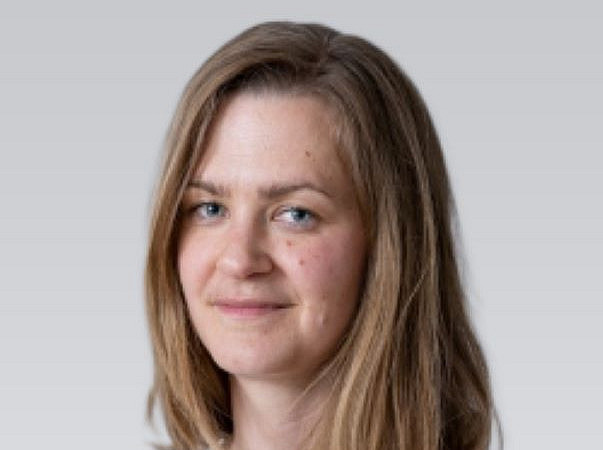
Mag. phil. PhD Katharina Oke
Katharina Oke studied journalism and African studies in Vienna. She then completed a doctorate in African history/global history at the University of Oxford. In 2018, she completed her doctorate on newspaper culture in Nigeria with the dissertation "The Politics of the Public Sphere. English-language and Yoruba-language Print Culture in colonial Lagos, 1880s-1940s". Before coming to Graz at the end of 2020, Katharina was a Lecturer in Modern African History at King's College, London, and a TORCH Visiting Research Fellow at the University of Oxford. Since September 2022, she has been a Marie Curie Global Fellow in partnership with the University of Ibadan, Nigeria. As part of this project - "A History of Making Things in West Africa" - she is researching entrepreneurial activities, (art) craft production and knowledge production in Accra and Lagos.
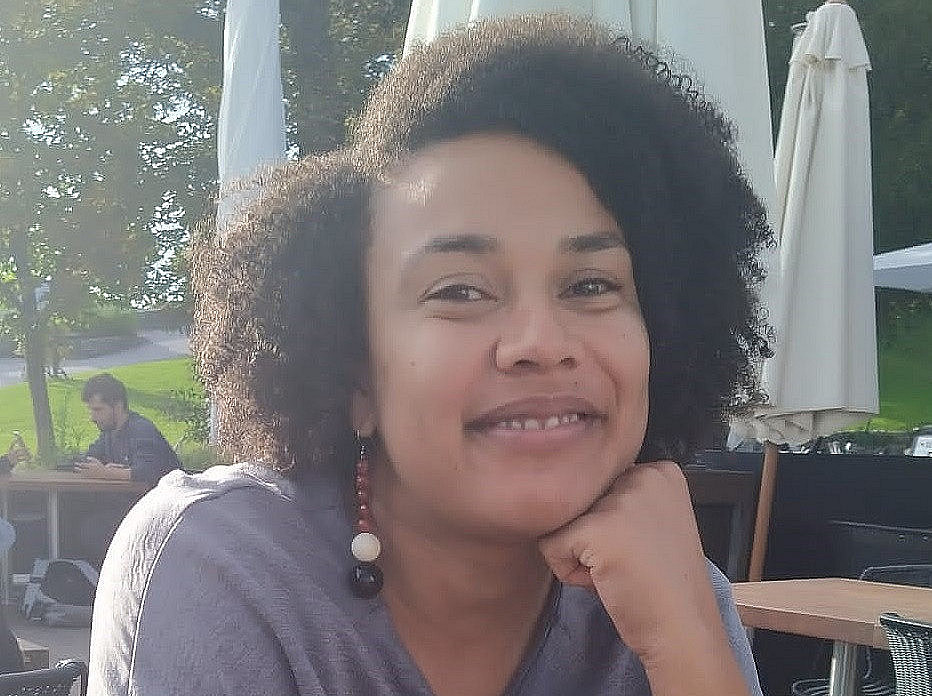
Mag.phil. PhD Katharina Oke
+43 316 380 - 8086
Treffpunkt sprachen - Zentrum für Sprache, Plurilingualismus und Fachdidaktik
Montags, 11-12
Prof. Dr. Barbara Stelzl-Marx
Barbara Stelzl-Marx is Professor of Contemporary European History at the University of Graz and Director of the Ludwig Boltzmann Institute for Research on the Consequences of War in Graz, Vienna and Raabs. She is also Vice President of the Austrian UNESCO Commission and a lecturer at the Diplomatic Academy of Vienna, a member of the Research, Science, Innovation and Technology Development Council of the Republic of Austria and a member of the jury for the Simon Wiesenthal Prize of the Austrian Parliament.
After studying history, English and Slavic studies in Graz, Oxford, Volgograd and at Stanford University, she spent a year researching in Moscow as part of an Erwin Schrödinger Fellowship from the FWF. The former APART fellow of the Austrian Academy of Sciences (ÖAW) was named "Scientist of the Year" in 2020. She was elected a corresponding member of the Austrian Academy of Sciences in 2024.
Her research focuses on the consequences of the Second World War, children of war, forced migration and the Cold War. She is currently leading several research projects in these areas. Her numerous publications include the award-winning habilitation "Stalin's Soldiers in Austria. Die Innensicht der sowjetischen Besatzung 1945-1955" and "Hitlers Exekutive. Die österreichische Polizei im Nationalsozialismus (ed. with Andreas Kranebitter and Gregor Holzinger). In 2018, she curated the exhibition "Lager Liebenau. A place of condensed history" at the GrazMuseum.

Univ.-Prof. Dr.phil. Barbara Stelzl-Marx
Dr. Monika Stromberger
Monika Stromberger studied history at the University of Graz and received her doctorate in 2001 in the field of contemporary history. From 1992-2013 she was involved in various research projects on topics such as: Urban research and modernity and Central Europe around 1900 (SFB), World War I, National Socialism in Styria, urban planning and architecture after 1945, the socialist city (Ljubljana), global history in the 20th century, architecture and consumer culture; exhibition projects on the ABGB and Annenstraße. From 1994 she was an external lecturer at the University of Graz, and spent some years at the Graz University of Technology. She has been a Senior Lecturer at the Department since 2013. In addition to awards for her research, she recently received the University of Graz Teaching Award for Digital Teaching.
Focus of research/teaching: city, memory politics, visual history; Slovenia, Styria; e-learning/digital media
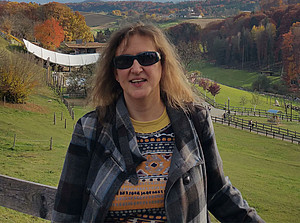
Assoc. Prof. DDr. Werner Suppanz
Werner Suppanz studied law (doctorate 1984) and history (doctorate 1993) at the University of Graz. From 1997 to 2003, he was initially a lecturer and project collaborator, in particular as part of the CRC "Modernity - Vienna and Central Europe around 1900" (1996-2004). Since 2007, he has been an assistant professor, and since his habilitation in 2017 on the topic of "Erinnerungslandschaften. The First World War in Discourses and Topographies of the 1920s" as Associate Professor in the department.
Main areas of work: History of memory and politics of the past, cultural history of the political and politics of identity with a focus on nationalism. In recent years, his focus has been on the First World War and the cultural and memory history of wars.
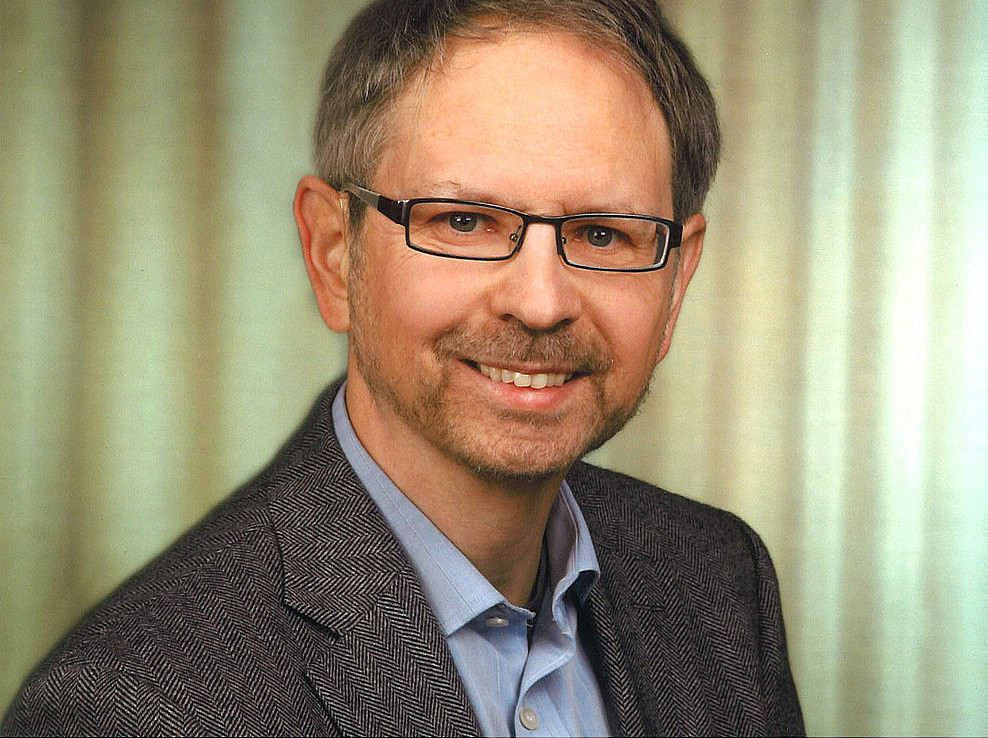
Assoz. Prof. DDr. Werner Suppanz
+43 316 380 - 8075
Institut für Geschichte
Parteienverkehr nach Terminvereinbarung
Mathias Egger, BA, MA
Mathias Egger is a student of history at the University of Graz and is currently writing his master's thesis on the topic of German print media coverage of the siege of Sarajevo.
Since May 2024, he has been employed as a student assistant at the Institute of History under Prof. Dr. Barbara Stelzl-Marx and is involved in various projects at the Ludwig Boltzmann Institute for Research on the Consequences of War.
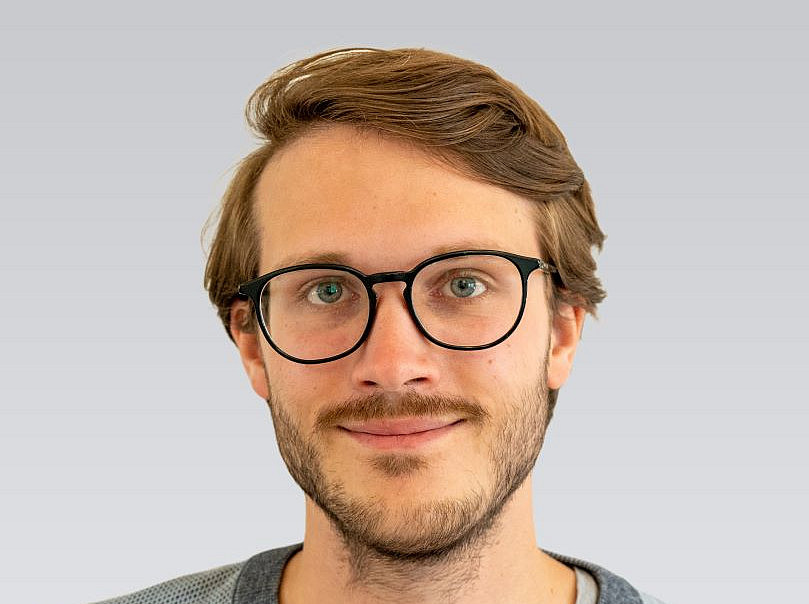
Linda Hackermüller
Linda Hackermüller is studying to become a teacher with a combination of History, Social Studies and Political Education as well as German. She has been working as a student assistant in the Contemporary History department since March 2024 and supports the team with curricular tasks and administrative activities.

Simone Hödlmoser
I completed my BA in Romance Studies (Spanish) in the summer semester 2023 and have been studying for an MA in Translation and Dialogue Interpreting (Spanish) since the winter semester 2023. I have been a student assistant at the Department of Contemporary History since SS 2023.
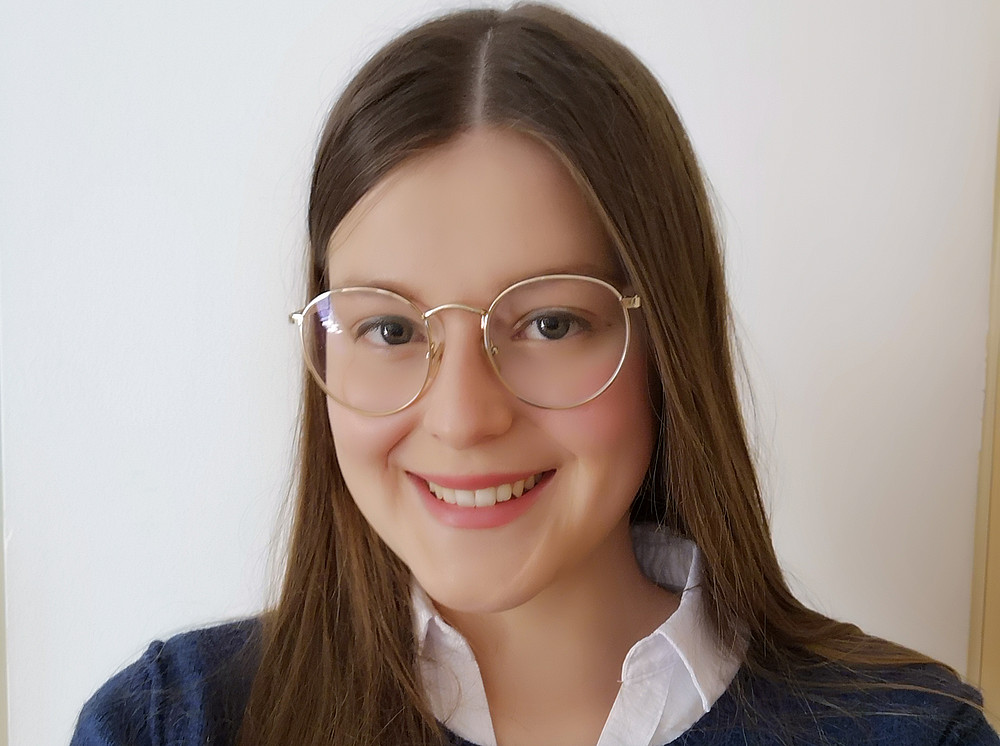
Annalena Zingl, BA
Annalena Zingl is currently studying for a master's degree in history and a diploma in law.
Since September 2023, she has been working as a student assistant in teaching, administration and research in the European Contemporary History Department at the Institute of History at the University of Graz under Prof. Dr. Barbara Stelzl-Marx and as an associate researcher at the Ludwig Boltzmann Institute for Research on the Consequences of War. Annalena Zingl is writing her diploma thesis on the Soviet and British occupation in Graz as reflected in media reports.
